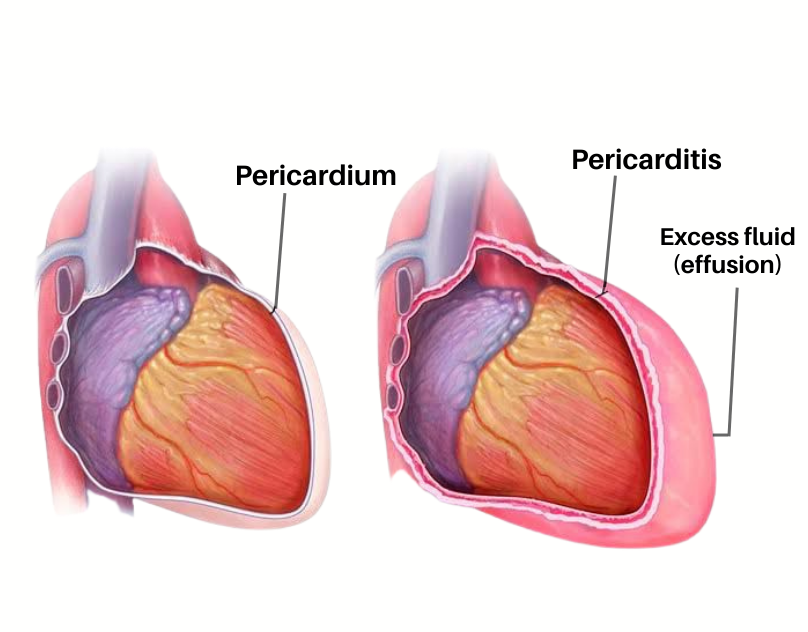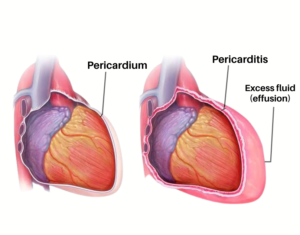- +91 83103 67685
- info@drameetoswal.com
- Basavanagudi
Best Pericardial Diseases treatment in Bangalore। According to cardiologists, the pericardium is a thin, two-layered fluid-filled sac covering the heart’s outer region. In other words, it acts as a shield to protect your heart.

Get the best Pericardial Diseases Treatment from our Doctor in Bangalore। The pericardium is a thin, two-layered fluid-filled membrane that protects the outer surface of your heart. The pericardium keeps the heart in place and helps it function properly. Pericarditis refers to inflammation in the pericardium. Pericarditis usually develops suddenly and takes weeks to months to heal. But in some cases, the episodes are recurrent.
Pericardial diseases or pericarditis can have many causes, mainly fungal, viral, injuries, drugs, and post heart surgery. When the pericardial disease is acute, it occurs suddenly and responds to treatment well. However, when pericarditis is “chronic,” it has developed over time and may take longer to resolve.
Talking about the effect of pericarditis, in most cases, its impact is mild, and the patient recovers on its own with rest or simple treatment. In rare cases, however, the consequences of the pericardial disease can be severe—for example, constrictive pericarditis where a patient presents with heart failure. Therefore, sometimes more intensive treatment is needed to prevent complications of pericardial disease like surgery.

Symptoms of pericardial diseases or problems include chest pain, fever, or symptoms of heart failure. The most common symptom of acute pericarditis is fever. The sooner you know the diagnosis, the sooner you should go for treatment. Treatment largely depends on the cause.
The most common symptoms of pericardial diseases are:-
There can be many reasons for pericardial diseases:-
According to cardiologists, pericarditis can affect anyone. But the issue of pericarditis is most common in males between the ages of 16 to 65 years.
Medicines are often enough to treat people with pericarditis. But treating your pericarditis depends largely on its cause. Pericarditis involves a build-up of fluid in your pericardium; sometimes, a percutaneous procedure may be needed to remove this fluid.
The treatment of chronic pericarditis may require taking colchicine. Surgery is only needed in severe cases. Your healthcare provider can give you better advice.
If you take medicine, it usually takes 2 to 4 weeks to recover fully from acute pericarditis and longer in case of chronic pericarditis. On the other hand, if you have had surgery, then recovery may take months. In rare cases, recovery from surgery takes years.
The following are the health risks of pericardial disease:-
Subscribe our newsletter for latest information in the field of cardiology
WhatsApp us